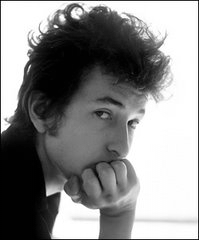Wow, it's really been almost a month since I've posted anything? Crazy how time flies. Here's a new post for ya:
(As always, Facebook users must click "View Original Post" to see the clips)
Movies You May Have Missed #7:
Jack the Bear (1993)
Marshall Herskovitz has been responsible - in the form of either producer, writer, or director - for three of the best television shows of all time: Family (1976-1980), thirtysomething (1987-1991), and My So-Called Life (1994). After thirtysomething and before MSCL, Herskovitz made his feature directorial debut with this very likable little film.
Based on a novel by the same name, Jack the Bear centers on John Leary (Danny DeVito, in what is probably still his best-ever performance), a father who, after the death of his wife in a car accident, struggles to care for his two young sons: twelve-year-old Jack and three-year-old Dylan (Robert J. Steinmiller Jr. and Miko Hughes, respectively).
In an attempt to give the family a fresh start, he moves with his boys to a close-knit, suburban community in Oakland, California. John - a kid-at-heart with some genuine comic ability - accepts a job as a late-night horror movie show host for a local TV station. The kids in the neighborhood, aware of his antics on the show, frequently knock on his door and ask him to play "the monster", chasing them around the yard as he pretends to be the character from his show. Behind closed doors, however, his title of "the monster" is, unfortunately, quite apt: He's a long-time alcoholic who's given to fits of rage while intoxicated. Since the death of his wife, the situation has gone from bad to worse, and since he's frequently drunk or hungover, older son Jack is forced to shoulder much of the responsibility for both the household, and his young brother Dylan.
This is a film that has somehow, over the years, fallen through the cracks. Reviews were mixed when it was released, and although it wasn't a total commercial bomb, it was far from successful (it grossed just over $5 million on a $3 million budget). With a wonderfully nuanced and touching performance from DeVito, and two of the most remarkable performances by young actors in quite some time, this is a film that's long overdue for a serious reevaluation.
The pedigree of the talent alone speaks volumes. Apart from Herskovitz, we have a great score by James Horner, and a script by future Oscar-winner Steven Zaillian (Schindler's List) who adapted Dan McCall's novel for the screen. Zaillian is able to strike a great balance between humor and sentiment, and succeeds in the difficult task of making DeVito's character sympathetic and likable. He's a flawed person, to be sure, but his character is so well-defined and anchored in reality that it makes both his inner-torment believable, and his eventual redemption emotionally satisfying. Very well-done.
And yes, that is a young Reese Witherspoon. The idea of young love is handled very well in this picture, by the way - just the right mix of awkwardness and longing and what-have-you. Set in 1972 Oakland, CA, the film also has a great sense of time and place. The feeling of a close-knit community is pretty spot-on, too; the neighborhood and its quirky inhabitants add another nice layer to the film.
Which brings us to the final act. It's the section of the picture that was most criticized. Without giving too much away, I'll briefly summarize: Throughout the film, in Jack's narration, we're introduced to a character named Norman Strick (played by the always-reliable Gary Sinise). He's quiet, lives alone, and keeps to himself. Needless to say, the children in the neighborhood find him to be pretty, well... creepy. On Halloween night, Norman stops by the Leary house, and shocks John by his actions in the following sequence:
(Oh yeah, word of caution: the following scene features some strong language. Nothing overly crude, but there are some racial epithets that some may find offensive)
So, yeah... the guy's a Nazi racist. Good times, eh?
Anyway, after a few twists and turns which I will not reveal here, the youngest son - 3-year-old Dylan - is kidnapped. This threatens to tear the family apart, as his deceased wife's parents (who've frequently voiced their disapproval of John's parenting because of his alcoholism) threaten to take the children away, as they believe he can no longer adequately care for them. And this all leads to a "showdown" of sorts - but probably not the kind you're expecting.
I'll be the first to admit that this last act is pretty unconventional. Most critics totally hated it. Even reviewers who had liked the film up until that point made sure to voice their displeasure. Loudly. But does it work? In my opinion... most definitely. Sure, it gets a little Hollywood-ized in this section, but the ending sure doesn't wrap everything up neatly with a ribbon and bow. It ends on a note of melancholy, with the distinct feeling that, while things have changed for the moment, and their lives have reached some sort of level of understanding and acceptance, it's going to take a lot of work, a lot of time, and a lot of love. And that's the way it should be, because anything less would be a cop-out.
Subscribe to:
Post Comments (Atom)


No comments:
Post a Comment